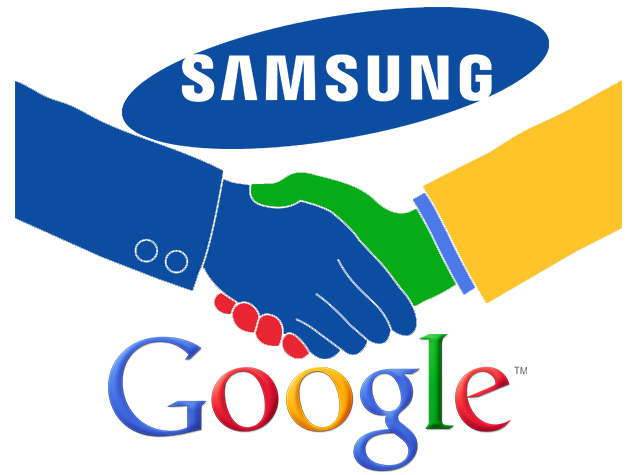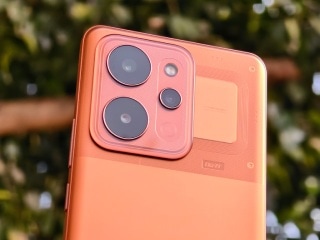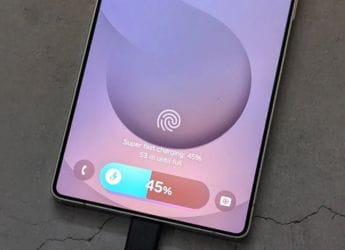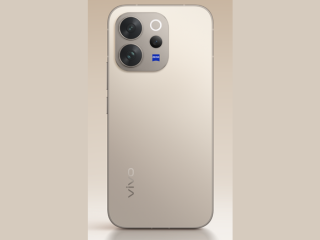- Home
- Mobiles
- Mobiles Features
- Samsung Google deal: What it means for Android, alternate mobile platforms, and Apple
Samsung-Google deal: What it means for Android, alternate mobile platforms, and Apple

Samsung and Google caught the tech world by surprise on Monday by announcing a long-term patent cross-licence deal. Samsung said that its agreement with Google will cover the firms' existing patents as well as those filed over the next 10 years.
"We're pleased to enter into a cross-license with our partner Samsung," said Allen Lo, Deputy General Counsel for Patents at Google. "By working together on agreements like this, companies can reduce the potential for litigation and focus instead on innovation."
So, is the agreement merely a defensive move for the two involved in patent litigation against other companies, most notably against Apple? Or is this a sign of Google getting cosy with one Android manufacturer, and if so, what does it mean for the others?
Respected mobile industry analyst Horace Dediu warns against reading too much into the deal itself and says it's worth looking at the motivations behind the deal.
"Broadly speaking, IP licensing and litigation are not instruments of strategy. They are so disconnected from market forces that in a rapidly changing market like phones, any actions taken will have no effects for years, by which time it will be too late," says Dediu. "In this case the more interesting hypothesis is why Google feels it needs to make these kinds of industry alliances?"
"If you can't beat 'em, just try to make 'em look bad," says Florian Mueller, who runs the popular FOSS Patents blog, suggesting the deal may at least partially have been motivated by the frustration of Google and Samsung at their inability to put their considerable patent arsenal to effective use.
"Samsung and Google own a lot of patents, but they haven't been able to gain much leverage from those patents against Apple, Microsoft and others," says Mueller. "They have, however, lost a number of lawsuits, and just last week a US judge found Samsung to fringe yet another Apple patent and invalidated one of Samsung's patents-in-suit, ahead of a trial scheduled to start on March 31."
Mueller believes that Samsung and Google may still be smarting from these setbacks, and the quotes from company executives in the announcement show that the "intention here is primarily to make those look bad who enforce their patents." The attempt by the two companies to have the deal seen as some sort of 'thought leadership', when others have entered into similar deals in the past, is fooling no one, notes Mueller.
How, then, will the deal between Google and the biggest Android manufacturer in the world be seen in Sony's Japan and, indeed, China where the likes of Huawei and Lenovo have risen to the top on the back of their Android offerings? "Alternative Android vendors will probably not change their strategies as a result," says Dediu. "These strategies were not motivated by IP issues and many of them operate in violation of the terms and conditions attached to Android."
But, answering his own question from earlier, Dediu has a word of caution for other Android OEMs. "Until recently, Google portrayed itself as open and agnostic," he says. "The current deal suggests that some vendors are more important than others. Perhaps the illusion of a level playing field in Android is long gone."
Some have suggested that the deal will signal the death of Android-derived platforms like Nokia X and that Samsung will, independent of the deal, kill Tizen, which is scheduled to make yet another 'debut' at MWC. Dediu believes the point is moot.
"The time for a new entrant has mostly passed due to the point we are in the adoption curves globally. There might be significant consumption in some regions, but it's not clear that a new platform can establish itself in those markets," Dediu believes. "Early adopters, no matter where, have already made the move to Android or iOS. Therefore the discussion on Tizen and alternatives will be mostly affected by market conditions rather than IP licensing."
Finally, Mueller thinks the Samsung-Google deal is bad news for anyone hoping for an out-of-court resolution of the seemingly endless patent battle between Apple and Samsung. "I've been somewhat skeptical of the prospects of a near-term Apple-Samsung settlement for some time," says Mueller. "I'm now even more skeptical because I believe Samsung would rather announce the really big news of a deal with Apple than engage in a PR ploy with a close ally."
Get your daily dose of tech news, reviews, and insights, in under 80 characters on Gadgets 360 Turbo. Connect with fellow tech lovers on our Forum. Follow us on X, Facebook, WhatsApp, Threads and Google News for instant updates. Catch all the action on our YouTube channel.
Related Stories
- Samsung Galaxy Unpacked 2025
- ChatGPT
- Redmi Note 14 Pro+
- iPhone 16
- Apple Vision Pro
- Oneplus 12
- OnePlus Nord CE 3 Lite 5G
- iPhone 13
- Xiaomi 14 Pro
- Oppo Find N3
- Tecno Spark Go (2023)
- Realme V30
- Best Phones Under 25000
- Samsung Galaxy S24 Series
- Cryptocurrency
- iQoo 12
- Samsung Galaxy S24 Ultra
- Giottus
- Samsung Galaxy Z Flip 5
- Apple 'Scary Fast'
- Housefull 5
- GoPro Hero 12 Black Review
- Invincible Season 2
- JioGlass
- HD Ready TV
- Laptop Under 50000
- Smartwatch Under 10000
- Latest Mobile Phones
- Compare Phones
- iQOO 15 Ultra
- OPPO A6v 5G
- OPPO A6i+ 5G
- Realme 16 5G
- Redmi Turbo 5
- Redmi Turbo 5 Max
- Moto G77
- Moto G67
- HP HyperX Omen 15
- Acer Chromebook 311 (2026)
- Lenovo Idea Tab Plus
- Realme Pad 3
- HMD Watch P1
- HMD Watch X1
- Haier H5E Series
- Acerpure Nitro Z Series 100-inch QLED TV
- Asus ROG Ally
- Nintendo Switch Lite
- Haier 1.6 Ton 5 Star Inverter Split AC (HSU19G-MZAID5BN-INV)
- Haier 1.6 Ton 5 Star Inverter Split AC (HSU19G-MZAIM5BN-INV)

















